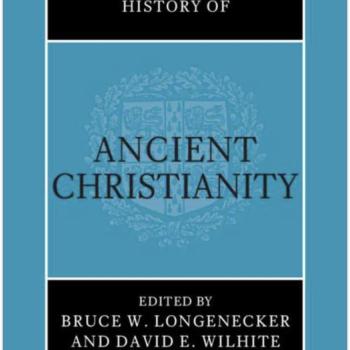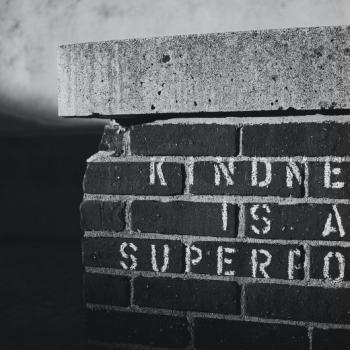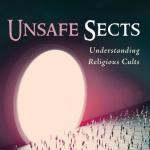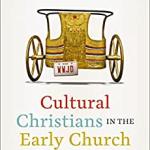
Antinatalism is a philosophical belief that questions the ethicality of procreation. Advocates of antinatalism argue that bringing new life into the world inflicts unnecessary suffering. Therefore, it is morally wrong to create individuals who will inevitably experience pain and hardship. While the concept of antinatalism is not new, it has gained traction in recent years, particularly within the childfree movement.
Origins of the Childfree Movement
Antinatalism can be traced back to ancient philosophies, such as Buddhism and Stoicism, which emphasized the importance of minimizing suffering. In more modern times, the influential works of Arthur Schopenhauer and David Benatar have contributed to the development and popularization of antinatalist ideas.
Schopenhauer,* a 19th-century German philosopher, believed that life was predominantly characterized by suffering. Procreation, then, perpetuated this cycle of pain. Similarly, Benatar, a South African philosopher, argued in his book, Better Never to Have Been, that non-existence is preferable to existence due to the inherent suffering that life entails.
Common Misconceptions about Antinatalism
There are several misconceptions surrounding antinatalism that often lead to misunderstandings or misrepresentations of the philosophy. One common misconception is that antinatalists hate children or are opposed to all forms of parenting. However, antinatalism primarily concerns itself with the act of procreation and the ethics surrounding it, rather than parenting itself.
Another misconception is that antinatalists are inherently pessimistic or nihilistic. While some antinatalists may hold pessimistic views about the world, it is not a prerequisite of the philosophy. Antinatalism is rooted in a concern for the well-being of actual and potential individuals and a desire to prevent unnecessary suffering.
Exploring the Childfree Movement
The childfree movement, which is often associated with antinatalism, is a social and cultural phenomenon that challenges the societal expectation of parenthood. Childfree individuals choose not to have children for various reasons, including personal freedom, lifestyle preferences, environmental concerns, and the desire to avoid the responsibilities and challenges of raising children.
While not all childfree individuals identify as antinatalists, there is often an overlap in beliefs. Both groups question the assumption that everyone should have children and advocate for the recognition of alternative paths to fulfillment and happiness.
Antinatalism and the Bible – Conflicting or Compatible?
The relationship between antinatalism and religious beliefs, particularly Christian beliefs based on the Bible, is complex and multifaceted. On the surface, antinatalism may seem incompatible with religious teachings that emphasize procreation and the value of human life. However, a closer examination reveals that there is room for nuanced interpretation and the potential for establishing common ground.
Examining Biblical Passages Related to Natalism and Antinatalism
The Bible contains various passages that discuss procreation and the importance of bearing children. These passages are often cited as evidence that antinatalism contradicts religious teachings. However, it is crucial to consider the historical and cultural context in which these passages were written.
For example, the commandment in Genesis 1:28 to “be fruitful and multiply” was issued to the first humans because God wanted them to create more little image bearers like themselves. He wanted more people on the earth who would learn to love Him and learn of His love for them. This same command was given to Noah and his family after the flood (see Genesis 9:1), probably for a similar reason.
The Psalms and Proverbs also contain several verses that celebrate the blessings of children. Here are a couple:
Children are a heritage from the Lord,
offspring a reward from him.
Like arrows in the hands of a warrior
are children born in one’s youth.
Blessed is the man
whose quiver is full of them.
They will not be put to shame
when they contend with their opponents in court. (Psalm 127:3-5, NIV)Children’s children are a crown to the aged,
and parents are the pride of their children. (Proverbs 17:6, NIV)
However, there are also verses antinatalists can use to prove how the Bible shows it is better for a person to never have been born.
Again, I saw all the oppressions that are done under the sun. And behold, the tears of the oppressed, and they had no one to comfort them! On the side of their oppressors there was power, and there was no one to comfort them. And I thought the dead who are already dead more fortunate than the living who are still alive. But better than both is he who has not yet been and has not seen the evil deeds that are done under the sun. (Ecclesiastes 4:1-3, ESV)
“Why didn’t I die when I was born?
Why didn’t I die as I came out of my mother’s body?
Why was I placed on her knees?
Why did her breasts give me milk?
If all of that hadn’t happened,
I would be lying down in peace.
I’d be asleep and at rest in the grave. (Job 3:11-13, NIRV)
It is important to note, however, that all these passages are from books of poetry. As such, their wisdom should be viewed as figurative more so than literal. These are lyrical expressions of important truths about the world, rather than prescriptive mandates for how to live in it.
Suffering is inevitable. Children are blessings given from God. Both aspects of the human condition can be used to point us more to our Heavenly Father and help us learn more about who He is.
Finding Common Ground between Antinatalism and Biblical Teachings
While there may be areas of tension between antinatalism and biblical teachings, it is possible to find common ground by focusing on the underlying values they share. Both antinatalism and the Bible emphasize the importance of compassion, empathy, and minimizing the suffering of others as much as possible.
For antinatalists, choosing not to procreate is an expression of their concern for the well-being of potential individuals, in addition to beings who are already present on the earth. Similarly, biblical teachings call for responsible and thoughtful parenting, acknowledging the weight of the responsibility that comes with bringing new life into the world.
The main difference between the two ways of thinking rests in how they view suffering. Antinatalists view suffering as something that can be avoided by human effort. They acknowledge the evil in the world, yet they believe it is caused, as well as experienced, by humans. Logically, then, the fewer humans who exist on the planet, the less suffering there will be for all.
On the other hand, Christians view suffering as a natural byproduct of sin in the world. Sin entered the world because Adam and Eve chose to listen to the devil instead of following God (see Genesis 3). Because of their disobedience, the whole earth was cursed, and even now:
…we know that all creation has been groaning as in the pains of childbirth right up to the present time. And we believers also groan, even though we have the Holy Spirit within us as a foretaste of future glory, for we long for our bodies to be released from sin and suffering. We, too, wait with eager hope for the day when God will give us our full rights as his adopted children, including the new bodies he has promised us. We were given this hope when we were saved. (If we already have something, we don’t need to hope for it. But if we look forward to something we don’t yet have, we must wait patiently and confidently.) (Romans 8:22-25, NLT)
The antinatalist hopes in himself. The Christian hopes in God.
The Impact of Antinatalism on Personal Beliefs and Choices
Antinatalism has the potential to challenge deeply ingrained societal and cultural norms surrounding parenthood and the expectation of procreation. For individuals who identify as antinatalists, this philosophy can shape their personal beliefs and choices regarding family planning.
The childfree movement encourages critical reflection on the ethical implications of procreation and prompts individuals to consider alternative paths to fulfillment and happiness that do not rely on having children. It fosters a greater appreciation for personal freedom, autonomy, and the pursuit of individual happiness.
In this respect, antinatalism isn’t so far removed from what the Bible teaches, except again, the Bible’s focus is on doing what is best according to God. Our own personal preferences are to be set aside in favor of His.
That being said, both Jesus and the apostle Paul said some interesting things about personal choice, especially when it comes to marriage and starting a family.
[Jesus told His disciples], “Because of your hardness of heart Moses allowed you to divorce your wives, but from the beginning it was not so. And I say to you: whoever divorces his wife, except for sexual immorality, and marries another, commits adultery.”
The disciples said to him, “If such is the case of a man with his wife, it is better not to marry.”
But he said to them, “Not everyone can receive this saying, but only those to whom it is given. For there are eunuchs who have been so from birth, and there are eunuchs who have been made eunuchs by men, and there are eunuchs who have made themselves eunuchs for the sake of the kingdom of heaven. Let the one who is able to receive this receive it.” (Matthew 19:8-12, ESV)
God’s design for His world always included marriage between a man and a woman who would love each other for life, procreate, and lead the next generations to follow Him. From the very beginning, however, as we saw above, that design was tainted by sin. And by the time Moses came to lead the Israelites, men’s hearts were so hardened against God and other people, they couldn’t stay successfully married to one woman for life.
Jesus spoke harshly about the practice of divorce, and His disciples were astonished by it, concluding that it would just be better not to get married at all. Notice how Jesus didn’t contradict them. Instead, He pointed out the blessings inherent in being single and unfettered by wife or children, as far as serving the kingdom of God was concerned.
Similarly, Paul said,
To the unmarried and the widows, I say that it is good for them to remain single, as I am. But if they cannot exercise self-control, they should marry. For it is better to marry than to burn with passion. … I would like you to be free from concern. An unmarried man is concerned about the Lord’s affairs—how he can please the Lord. But a married man is concerned about the affairs of this world—how he can please his wife—and his interests are divided. An unmarried woman or virgin is concerned about the Lord’s affairs. Her aim is to be devoted to the Lord in both body and spirit. But a married woman is concerned about the affairs of this world—how she can please her husband. I am saying this for your own good, not to restrict you, but that you may live in a right way in undivided devotion to the Lord. (1 Corinthians 7:8-9; 32-35 ESV)
In these passages, singleness and childlessness are not seen as burdens. Rather, under these conditions, a man or woman of God can be free to serve God wholeheartedly, in a way that is not possible if they have the responsibilities of caring for a spouse and a family.
Children are a blessing from the Lord, but so is singleness. God calls us all to serve Him in different ways, according to our unique personalities and desires. And He lets us make the choice of whether we will serve Him or ourselves.
Debunking Stereotypes and the Stigma Surrounding Antinatalism
Antinatalism often faces stereotypes and stigma from those who misunderstand or misinterpret its principles. One common misconception is that antinatalists are selfish or lack empathy. However, antinatalism is rooted in a genuine concern for the well-being of actual and potential individuals and a desire to prevent unnecessary suffering in the world.
It is essential to engage in open and respectful dialogue to debunk these stereotypes and foster understanding. By encouraging conversations that address misconceptions and provide accurate information, we can create a more inclusive and accepting society that respects diverse perspectives on procreation.
Encouraging Open Dialogue and Understanding between Antinatalists and Religious Communities
Antinatalism and the Bible aren’t, after all, as at-odds as they at first appear to be. The childfree movement challenges conventional beliefs about parenthood and procreation. As such, its relationship with biblical teachings warrants thoughtful exploration. By fostering open dialogue, we can bridge the gaps and find common ground centered on the important shared values of personal choice, compassion, empathy, and the pursuit of minimized suffering.
Through respectful conversations and a willingness to challenge our own beliefs, we can create a society that respects individual choices regarding procreation while also acknowledging the ethical implications involved. Let us strive to build a world where diverse perspectives are valued, and where the complexities of antinatalism and religious beliefs can be explored with empathy and open-mindedness.
What are your thoughts on antinatalism and its relationship with religious beliefs? Share them in the comments below. Let’s begin a respectful discussion to begin to bridge the gaps between these distinct perspectives.
*This post contains affiliate links. I may make a small commission if you purchase something from these sites after visiting them.

















